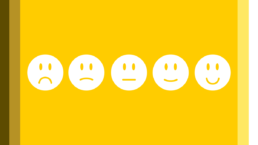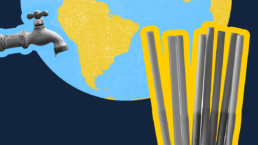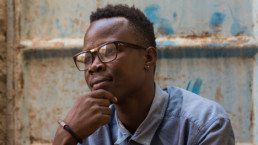Sharing Our Message on Positive Thinking Day

Last Sunday (Sept. 13) marked a day that deserves more attention – Positive Thinking Day. Though it is now behind us, we should still reflect on how we can attain a more positive mindset. A positive mindset is a powerful thing. With the right resources, team, and community, this evolves into something even more powerful – positive impact that can transform the world.
CoPeace is a company built on channeling the power of positive thinking into achieving positive impacts on our world. We continue to build an ecosystem of impactful companies providing innovative solutions to the climate crisis and ongoing social injustices. We are fortunate to have a network of like-minded, supportive investors and partners that believe in the CoPeace mission, and we are always looking to include more people in our community!
Positive energy breeds positive energy. As you reflect on this past Positive Thinking Day, how can you share your values within your community to help us all grow?
Jacob Miller is a financial analyst at CoPeace. As a forward-thinking holding company, CoPeace is building a portfolio of carefully selected for-profit companies with measurable social and environmental impact. To learn more about impact investing, check out CoPeace’s Intro to Impact Investing.
Be the Change: Small Habits that Help Save Our Oceans

Monday marked World Oceans Day 2020, a day to celebrate the lungs of our planet and provide calls to action to help protect them. Our little blue marble depends on healthy, vibrant oceans to thrive. Each year, the United Nations selects a “theme” for this day. This year’s World Oceans Day theme is “Innovation for a Sustainable Ocean.”
CoPeace strongly believes the status quo must change to give justice to underserved communities and protect our climate. It is critically important to highlight businesses and organizations providing innovative solutions to our growing climate crisis, no doubt! However, the actions taken by individuals lay the foundation for change at the local, national, and global levels. The Buddha said, “Thousands of candles can be lit from a single candle, and the life of that candle will not be shortened.”
You can be the change you wish to see in the world. Here are a few habits you can develop to help protect our oceans today:
1. Conserve water. Take shorter showers, or better yet take a relaxing bath instead! Turn off the faucet while shaving or brushing your teeth. Use a dishwasher instead of cleaning your dishes by hand.
2. Avoid single-use plastics. No, Karen, you’re not saving the oceans with just your metal straw. Of the 8 million tons of plastic that flow into our oceans each year, straws comprise just 0.025% of that. Instead, avoid plastic bags, bottles, and containers. Try to find reusable storage containers, travel cups, and bags.
3. Shop ethically sourced seafood and fish responsibly. If you are able to do so, try to purchase seafood from trusted, local, ethical vendors. Better yet, go vegetarian or vegan! If you do fish, follow local regulations and “catch and release” procedures.
4. Sign petitions/Volunteer/Donate. This petition on WorldOceansDay.org is a great place to start! If you live near a beach, volunteer in beach cleanup projects.
Jacob Miller is a financial analyst at CoPeace. As a forward-thinking holding company, CoPeace is building a portfolio of carefully selected for-profit companies with measurable social and environmental impact. To learn more about impact investing, check out CoPeace’s Intro to Impact Investing.
A Primer on Impact Investing & B Corp Status

Our CFO Hanan Levin said it best in his blog last week: “Impact investing is no longer a trend. It’s a constant.” In fact, we first wrote about this impact investing “trend” almost a full year ago in our blog. February is B Corp Month, so let’s talk about impact investing, B Corporations, and CoPeace!
Impact Investing
Impact investing focuses on using the power of capital to promote the greater good, while achieving a positive financial return. It addresses a broad scope of social and environmental issues through investments in companies with demonstrable solutions to said issues: from increasing access to clean water and energy for underserved populations to establishing equitable labor practices.
Certified B Corporations®
B Corporation – or B Corp, for short – refers to companies that receive certification from the non-profit B-Lab. Certified B Corps seek to create value for all stakeholders (not just shareholders!), through verified performance, public transparency, and legal accountability. CoPeace received full Certified B Corp status in August of 2019, and you can read our B Impact report here.
Impact investing and B Corps together disrupt the traditional model of capitalism, the model that stresses profit-at-all-costs with zero social or environmental considerations. B Corp status provides the framework, while impact investing is the underlying theory. Investing in a B Corp might be considered an impact investment, but not all impact investments must be made into B Corps exclusively. As a Certified B Corp in the impact investing space, CoPeace is following an established and verified framework, while actively working with positive impact companies.
Jacob Miller is a financial analyst at CoPeace. As a forward-thinking holding company, CoPeace is building a portfolio of carefully selected for-profit companies with measurable social and environmental impact. To learn more about impact investing, check out CoPeace’s Intro to Impact Investing.
What is Real Impact?

As we’ve positioned ourselves in the impact investing space here at CoPeace, a common concern emerges in our conversations – How can CoPeace achieve real impact with its investments?
This is not a light question. Complex, systemic issues require attentive, holistic solutions. CoPeace attempts to address these issues through its growing portfolio of complementary subsidiaries, but how can we be sure we are producing real impact?
We definitely know what “real” impact is not. If a fund claims to be socially-responsible fund, but includes a company like Exxon in its portfolio, then that fund is not an impact fund. We can also distinguish solving an issue from reducing the negative effects of an issue. A clothing company that uses 25% less nonrenewable materials in its products might be relatively more sustainable, but this does not address the core of the issue with the fast fashion industry. “Real” impact is not just doing less of the bad stuff!
CoPeace stringently screens potential holdings through our HEAD + HEART + MATH approach. We ensure each of our subsidiaries generates mission-driven, measurable impact. As a Public Benefit Corporation and Certified B Corporation, CoPeace actively works to align its operations along themes of impact and radical transparency. CoPeace enables you to use your money to produce real impact without sacrificing financial return – you can grow your money for good.
Jacob Miller is a financial analyst at CoPeace. As a forward-thinking holding company, CoPeace is building a portfolio of carefully selected for-profit companies with measurable social and environmental impact. To learn more about impact investing, check out CoPeace’s Intro to Impact Investing.
Democratizing Investing, For Good

If you’ve ever taken a personal finance class, you’re probably familiar with the concept of early investing. One of the key takeaways I recall from my experience is that your teens and twenties are prime years to begin investing. Simply strike the perfect balance between expenses, saving, investing, and spending, and then let your money work for you.
 Of course, this quixotic vision proves relatively easy to attain for those who come from generational wealth or enjoy other privileges. However, the vast majority of teens and twenty-somethings today face increasing student loans, rising rents in areas of greatest opportunity, and sluggish wage growth. Expenses comprise an increasingly larger portion of that delicate balance in our personal finances. It becomes more difficult to partake in the investment space while seeing significant, steady returns. In other words, there is limited access to capital for the majority of young people today.
Of course, this quixotic vision proves relatively easy to attain for those who come from generational wealth or enjoy other privileges. However, the vast majority of teens and twenty-somethings today face increasing student loans, rising rents in areas of greatest opportunity, and sluggish wage growth. Expenses comprise an increasingly larger portion of that delicate balance in our personal finances. It becomes more difficult to partake in the investment space while seeing significant, steady returns. In other words, there is limited access to capital for the majority of young people today.
CoPeace disrupts the investment space by increasing access to capital for traditionally underserved and marginalized communities. Our anticipated Direct Public Offering (DPO) allows these communities to participate in the investment space at low personal cost, while simultaneously funding growing companies solving environmental or social issues in the world today. This enables CoPeace to aid in the process of building generational wealth, which makes striking that balance, and entering the investment space earlier, that much easier.
Jacob Miller is a financial analyst at CoPeace. As a forward-thinking holding company, CoPeace is building a portfolio of carefully selected for-profit companies with measurable social and environmental impact. To learn more about impact investing, check out CoPeace’s Intro to Impact Investing.
The Proof is in the Pudding

The bottom-line has been the primary concern of traditional investment strategies. This strategy posits that the best investments are those with the greatest returns. This may be great for our bank accounts, but gone awry this can pose severe consequences for our local, national, and global communities.
Nowadays, more and more companies pursue the “triple bottom-line”: great fiscal returns, good for the planet, and provide positive social impact. Numerous articles document the widespread incorporation of positive environmental, social, and governance principles into corporate operations, and the market responds in turn. The evidence suggests SRI investments perform just as well as traditional investments. In some cases, SRI investments even outperform their counterparts. One question remains: how can one know their investments meet the triple bottom-line?
Fortunately, we have a wealth of tools at our disposal to aid in this daunting task. The natural and social sciences help diagnose the ills facing our society and evaluate the impact of our interventions. A recent article in the Harvard Business Review, Calculating the Value of Impact Investing, presents a metric, aptly named the “Impact Multiple of Money.”
Here at CoPeace, we use these tools to gain a holistic understanding of the companies in which we invest. Our Head + Heart + Math approach empowers us to not only meet the triple bottom-line, but exceed it. With CoPeace, you truly can Grow Your Money for Good.
Jacob Miller is a financial analyst at CoPeace. As a forward-thinking holding company, CoPeace is building a portfolio of carefully selected for-profit companies with measurable social and environmental impact. To learn more about impact investing, check out CoPeace’s Intro to Impact Investing.





